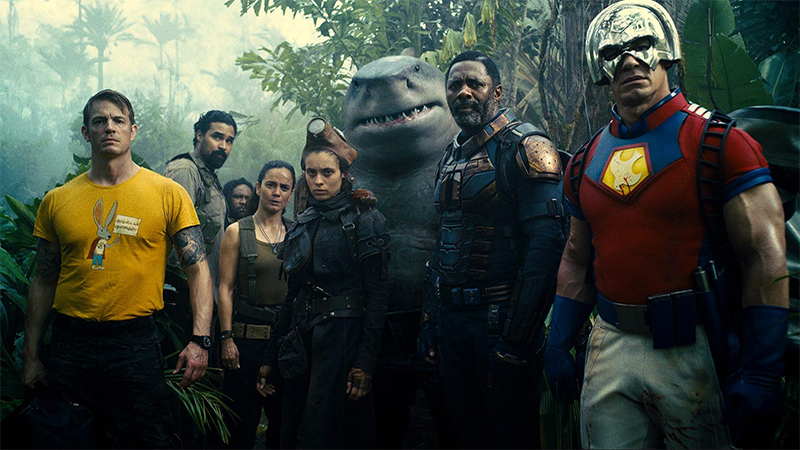Why Do Clinical Trials Cost So Much? Dr. Gerald Horn Explains
ACCESS Newswire
12 Jan 2021, 04:01 GMT+10
DEERFIELD, IL / ACCESSWIRE/ January 11, 2021 / There are many steps and facets to the supplement, drug, and pharmaceutical development processes. Once a lead compound has been identified, then the potential side effects and interactions with other excipients must also be researched preclinically. The next step is to submit your study to the FDA for a Phase I trial, a first step to find the dosing and assess the safety before you can test at doses that might be truly beneficial. It's a system set up to protect the American people from unintended consequences of new uses or new discoveries of drugs we hope can improve our medical armamentarium to treat disease and promote wellness. We want to ensure that the drugs and supplements we put into our bodies are safe and that they do what they say they will.
Where the system starts to break down is in the clinical trial phase according to Dr. Gerald Horn. The FDA requires that a product proves its safety and efficacy through clinical trials on human subjects - and that process is expensive. The expense deters a lot of products and supplements from seeking FDA approval, which means the American people are largely unaware of their true benefits. It also means that we're getting used to taking non-FDA approved vitamins and supplements, which can leave us open to the very problems the FDA is trying to avoid.
So why are clinical trials so cost-prohibitive? Dr. Gerald Horn says that the human element is the biggest consideration.
The Cost Of Human Test Subjects is Exorbitant Says Dr. Gerald Horn
We've all read the exciting headline about cancer being cured in mice or treatments in pigs showing promise - but then we never hear of these miracle drugs again. Dr. Gerald Horn says that's because we don't have a good model for how drugs will serve and affect us outside of humans themselves. The best way to discern if a supplement will benefit humans is to test it on humans.
'But humans are expensive, humans are busy, and the number of participants necessary to power a trial to prove efficacy is an enormous challenge,' says Dr. Gerald Horn. If the FDA mandated any drug proven safe could be licensed and sold, their popularity based on doctor and patient determination of efficacy, even the high cost of human subjects would be manageable. This problem cannot be underestimated.
For a vaccine trying to prevent disease that means 15,000 to 30,000 or more participants. So for an arthritis drug even reducing hospitalizations by 20% would not satisfy those criteria.
It would take 1000's of participants to try and show efficacy in preventing Covid. Drugs like Acyclovir were approved as antivirals for treating shingles because when taken within three days it was possible to show the early lesions did not progress. There is no such visible consistent marker with other viral illnesses like Covid, however.
When you're talking about 1,000 people over the course of two years, that's a lot of money. Even if you only paid them $1000 each over the course of the entire study, you'd need $1,000,000 dollars. That's for volunteer compensation alone! This doesn't even include lab processing costs, staffing, and the overhead of things like rent and electric bills.
You may ask, why do you need 30,000 people? Can you conduct a clinical trial with a smaller cohort of patients? That question leads us to the next point.
Dr. Gerald Horn Explains the Significance of Statistical Success and P Values
When you're running a clinical trial, you are basically solving for 'P' where P is a probability value. You have to prove statistically that the benefits shown by your product did not occur by chance or happenstance. The way that you prove this is through control groups. You measure people who are not taking the supplement and people who are taking the supplement and compare their improvements. The FDA requires a 95% success rate - or a P value of less than 0.05% explains Dr. Gerald Horn.
This seems simple enough. We want the products we consume to be effective and safe. But statistically, this is a difficult number to achieve with smaller sample sizes. If nine out of ten people saw benefits from the product being tested, this would still be considered 'statistically insignificant' according to the FDA - because nine out of ten is only 90% effective.
This means you need a wider pool and when you take into account the placebo effect and re-testing, the numbers needed to net a 95% success rate start to rise. As we've already discussed, more people means more money.
So for now, it's difficult for minor supplement patent holders and companies with CPG (consumer packaged goods) products that might have health benefits to take their products through a true clinical trial to be able to prove and promote those benefits, says Dr. Gerald Horn. But he hopes that will change and more funding and possibly a lower 'P' value bar for consumer products that are submitted to FDA trials will be available in the future based on the natural sourcing of their ingredient mix as likely significantly safer than a typical new drug to be studied.
CONTACT:
Caroline Hunter
Web Presence, LLC
+1 786-551-9491
SOURCE: Dr. Gerald Horn
View source version on accesswire.com:
https://www.accesswire.com/623851/Why-Do-Clinical-Trials-Cost-So-Much-Dr-Gerald-Horn-Explains
 Share
Share
 Tweet
Tweet
 Share
Share
 Flip
Flip
 Email
Email
Watch latest videos
Subscribe and Follow
Get a daily dose of Atlanta Leader news through our daily email, its complimentary and keeps you fully up to date with world and business news as well.
News RELEASES
Publish news of your business, community or sports group, personnel appointments, major event and more by submitting a news release to Atlanta Leader.
More InformationInternational
SectionUS sends message by publicizing visa ban on UK punk-rap band
WASHINGTON, D.C.: The Trump administration has made public a visa decision that would usually be kept private. It did this to send...
Tragedy in Spain: Diogo Jota and his brother die in car accident
MADRID, Spain: Liverpool footballer Diogo Jota and his younger brother, André Silva, have died in a car accident in Spain. Spanish...
Early heatwave grips Europe, leaving 8 dead and nations on alert
LONDON, U.K.: An unrelenting heatwave sweeping across Europe has pushed early summer temperatures to historic highs, triggering deadly...
U.S. military, China, Russia in Space race
President Donald Trump's plans to build a space-based Golden Dome missile defense shield have drawn immediate criticism from China,...
Trump wins $16 million settlement from Paramount over CBS Harris edit
NEW YORK CITY, New York: Paramount has agreed to pay US$16 million to settle a lawsuit brought by U.S. President Donald Trump over...
British PM faces major party revolt over welfare reforms
LONDON, U.K.: British Prime Minister Keir Starmer won a vote in Parliament this week to move ahead with changes to the country's welfare...
Business
SectionMeta hires SSI CEO Gross as AI race intensifies among tech giants
PALO ALTO/TEL AVIV: The battle for top AI talent has claimed another high-profile casualty—this time at Safe Superintelligence (SSI),...
Engine defect prompts Nissan to recall over 443,000 vehicles
FRANKLIN, Tennessee: Hundreds of thousands of Nissan and Infiniti vehicles are being recalled across the United States due to a potential...
Microsoft trims jobs to manage soaring AI infrastructure costs
REDMOND, Washington: Microsoft is the latest tech giant to announce significant job cuts, as the financial strain of building next-generation...
Stocks worldwide struggle to make ground Friday with Wall Street closed
LONDON UK - U.S. stock markets were closed on Friday for Independence Day. Global Forex Markets Wrap Up Friday with Greeback Comeback...
Nvidia briefly tops Apple’s record in AI-fueled stock rally
SANTA CLARA, California: Nvidia came within a whisker of making financial history on July 3, briefly surpassing Apple's all-time market...
ICE raids leave crops rotting in California, farmers fear collapse
SACRAMENTO, California: California's multibillion-dollar farms are facing a growing crisis—not from drought or pests, but from a sudden...













